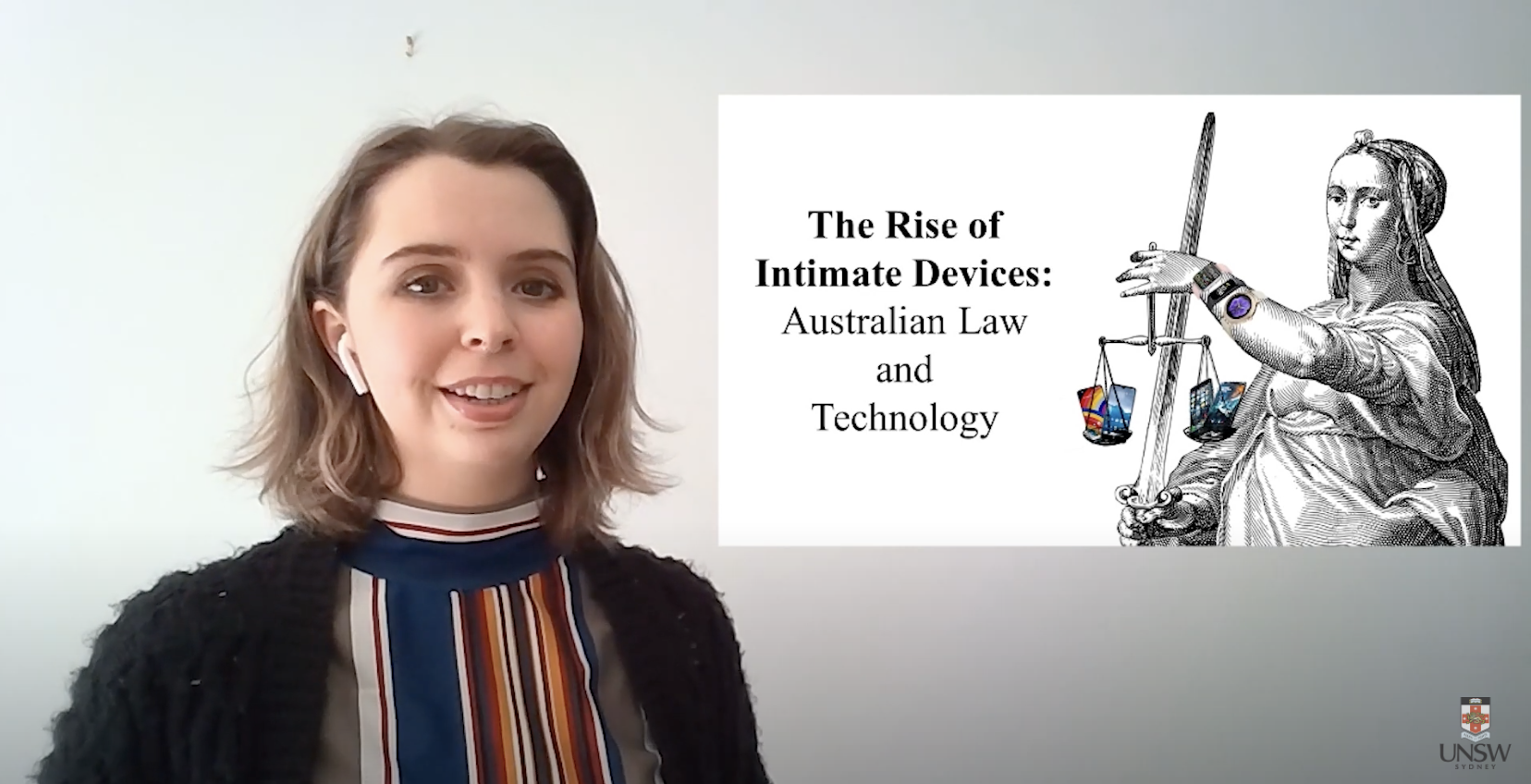UNSW Canberra PhD student a runner up at this year’s 3MT
Mobile phones and smartwatches collect very specific, personal data about their users. But to what extent does the user retain legal control over the data generated by and stored on these devices?

